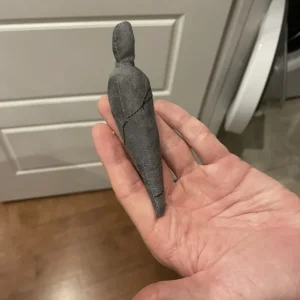The autumn wind whipped through South Philadelphia, carrying with it the faint scent of tailgates and the distant roar of a phantom crowd. For Jason Kelce, the stadium lights had long since dimmed, replaced by the softer glow of his living room, where a trophy case gleamed with reminders of a warrior’s past. Retirement, they called it. A time for rest, for family, for reflection. But tonight, reflection brought a sharp pang to his chest.
He missed it. He missed the brutal ballet in the trenches, the bone-jarring collisions, the perfect synchronization with his brothers-in-arms. He missed the roar of the Linc, a sound that vibrated deep in his soul and reminded him he was exactly where he was meant to be. Now, the quiet hum of the refrigerator felt deafening. He thought of the pre-game rituals, the shared glances, the unspoken promises made in the tunnel. Those moments, once so real, now felt like distant echoes in a vast, empty hall.
His mind wandered to the final moments, the last snap. The weight of the world, not on his shoulders, but in his heart, as he knew it was truly over. He had given everything, bled for the🦅, and left no doubt about his commitment. Yet, even with all the accolades, the Super Bowl ring, the enduring love of a city, there was an ache. An unfillable void where the intense, demanding, exhilarating life of an NFL center once resided.
He sighed, running a hand over the smooth, cold surface of his Super Bowl ring. It was a symbol of triumph, yes, but also a stark reminder of what he had lost. The brotherhood, the relentless pursuit of perfection, the very identity he had forged over a lifetime of sacrifice. The legend of Jason Kelce would live on, whispered in the stands and recounted in highlight reels. But for the man himself, a quiet sadness settled in, a melancholic understanding that even the greatest victories leave behind their own unique kind of heartbreak.




